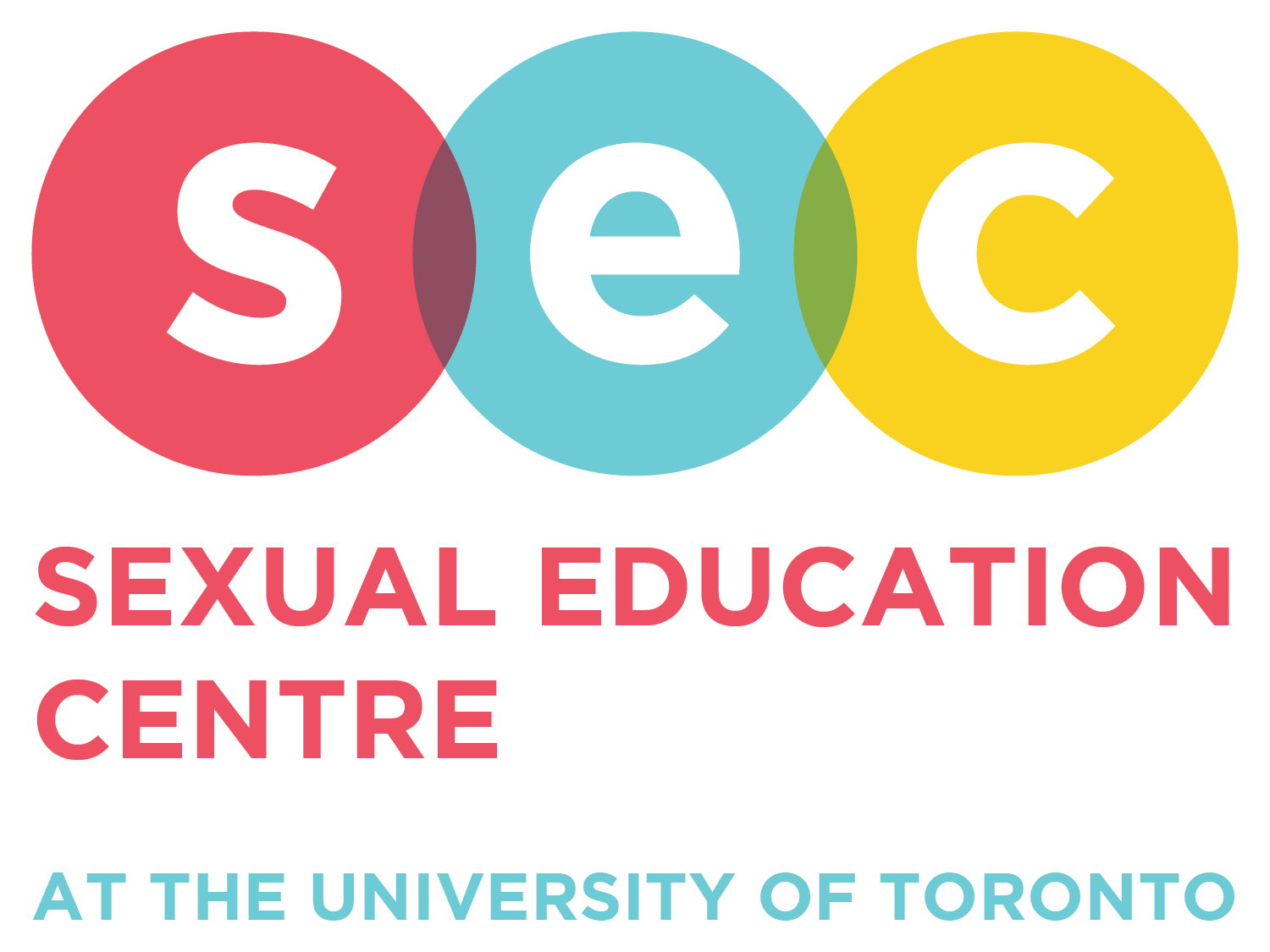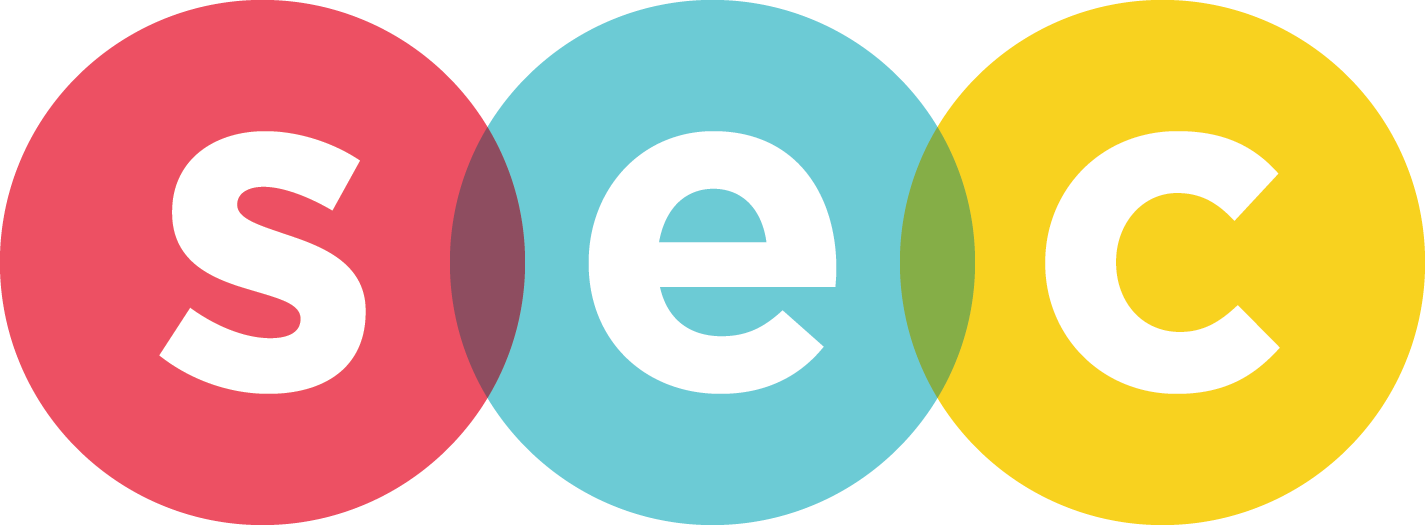
Our History at the University of Toronto, St. George Campus
The U of T Sexual Education Centre (SEC) began its operations from a Students’ Administrative Council (SAC) Project Aid Grant in the academic year of 1976-77.
The need for a peer counselling service was manifested at the time. A group of U of T students approached the Students’ Administrative Council for funding and formed SEC. Originally located behind the Admissions Office on Bloor Street, SEC moved to 42A St. George after 1986. With the demolition of 42A in the winter of 1999, SEC moved to the main floor of the CIUT Building at 91 St. George Street, before finally settling in suite 612 of 21 Sussex, where it is currently located.
A standing SAC-SEC Committee existed to manage and maintain the Centre’s activities until the academic year 1984-85. However, due to the Centre’s policy on giving abortion clinic referrals if requested, we lost our funding from SAC in 1984. St. Michael’s College (a Roman Catholic Federated College at U of T) threatened to pull its funding from SAC if it continued to fund SEC. In the years of 1984-85 and 1985-86 a SEC Management Committee replaced the SAC-SEC committee. The new Centre now operates independently as a collective.
Since the loss of our core funding in 1984, we had to rely on the generosity of the various student councils and societies at U of T. SAC continued to work on joint projects with SEC thus contributing certain funding to certain events.
On March 20th and 21st, 1996, a referendum question was posed to all full-time undergraduate students in the St. George Campus (Downtown Toronto). The question read as follows:
“Do you agree that SAC should collect a 50 cent (opt-outable) levy from every undergraduate full-time student in the St. George Campus towards the operation of the University of Toronto Sexual Education and Peer Counselling Centre?”
Students voted overwhelmingly in favour of the levy. Starting in the fall of 1996, SEC began to receive direct funding from full-time undergraduate students at U of T. This funding allowed us to expand our services in many needed areas. We increased our outreach in the form of support groups, workshops, a bigger and better Sexuality Awareness Week. We were able to increase awareness about the services that SEC provides through an increase in publicity. We started an educational video library on sexuality subjects, and expanded our library. Subscriptions to journals and magazines in the field of human sexuality were re-instated, and our training was strengthened.
As of 2010, SEC has kept on keeping on with a twist; we’ve changed our name to better reflect the changing times and meaning of certain words that comes with it. Welcome to the era of the University of Toronto Sexual Education Centre.
In March 2015 SEC ran a referendum question to all graduate students at the University of Toronto asking for support of 50 cents a semester from every full time graduate student and 25 cents a semester from every part time graduate student. An additional referendum was run for this levy to be adjusted for inflation. This levy was successful.
In 2020, due to the COVID-19 pandemic, SEC’s office closed. The organization continued to provide its services virtually and through curbside pickup. In February 2021, SEC moved to the student commons.
Financial Support:
SEC is currently funded by a 25 cent per semester (50 cents a year) Levy from the Undergraduate Students at University of Toronto and a 50 cent per semester (1 dollar per year) Levy from full time Graduate Students at the University of Toronto and a 25 cent per semester (50 cents per year) levy from part time Graduate Students at the University of Toronto. The following student councils, societies, offices and organizations have contributed much valuable financial support and resources to SEC in the past years:
Anonymous Donors, Association of Arts and Sciences Students’ Union, Association of Part-Time Undergraduate Students, City of Toronto Department of Public Health, CUPE 3902 (University of Toronto Education Workers), Engineering Society, Graduate Student’s Union, Innis College Student Council, Lesbians, Gays, Bisexuals, and Transpeople Out at U of T (LGBTOUT), New College Student Council, Ontario Public Interest Research Group (OPIRG), Students’ Administrative Council (SAC), Trinity College Meeting, U of T Office of Student Affairs, University College Literary and Athletic Society (UC Lit), Victoria University Students’ Administrative Council (VUSAC)
Special Thanks:
In addition, the Centre has benefited tremendously from the help and support of the following organizations during our training programs and event presentations:
City of Toronto Department of Public Health
AIDS Committee of Toronto (ACT)
Asian Community AIDS Services
Planned Parenthood Toronto
The House
Hassle Free Clinic
Central Toronto Youth Services
519 Community Centre
Toronto Counselling Centre for Lesbians and Gays
Lesbian, Gay and Bisexual Youth Line
Toronto Rape Crisis Centre
Metro Toronto Distress Centre
African Community Health Services
2-Spirited People of the First Nations
Sex Information and Education Council of Canada (SIECAN)



